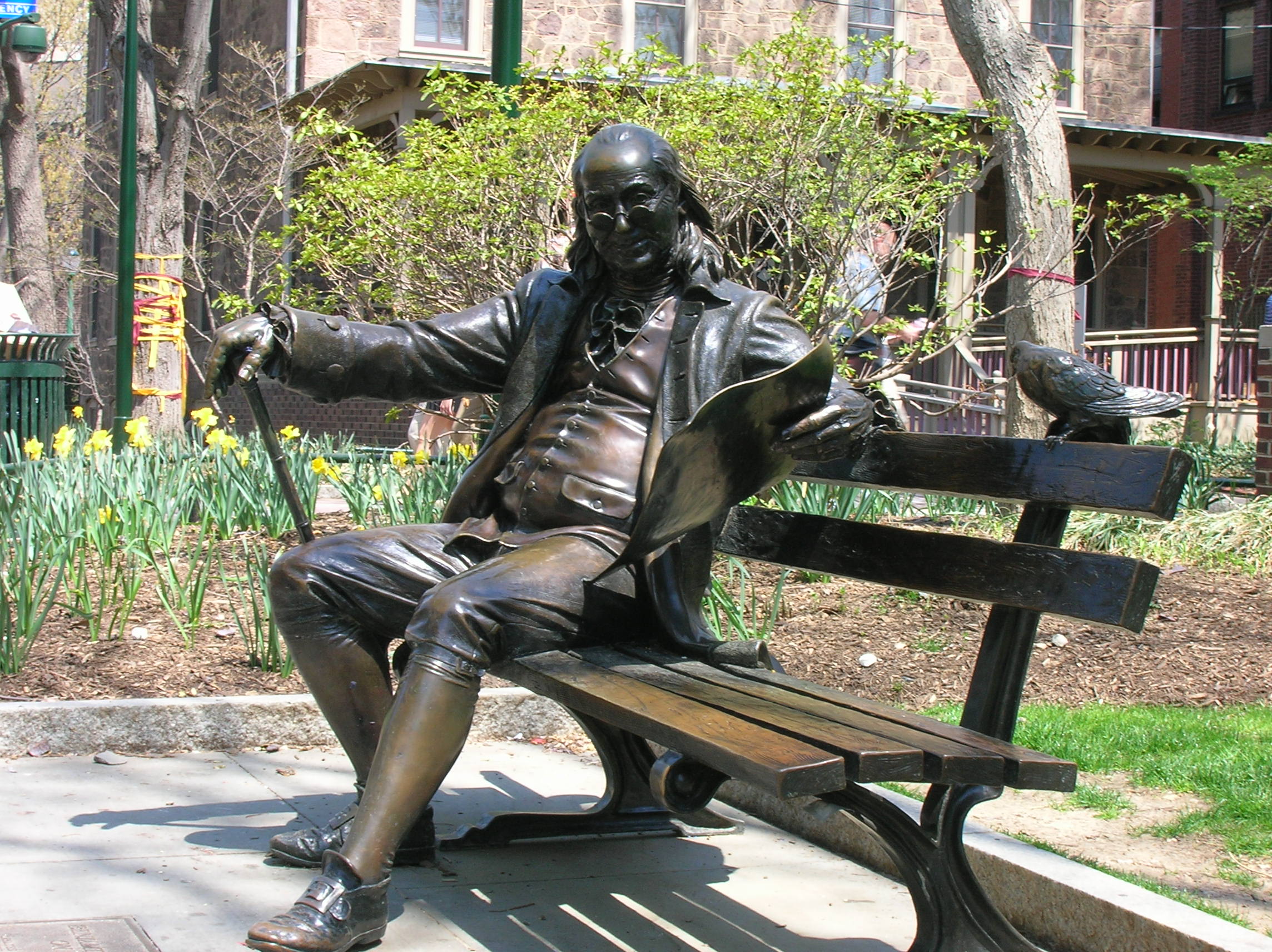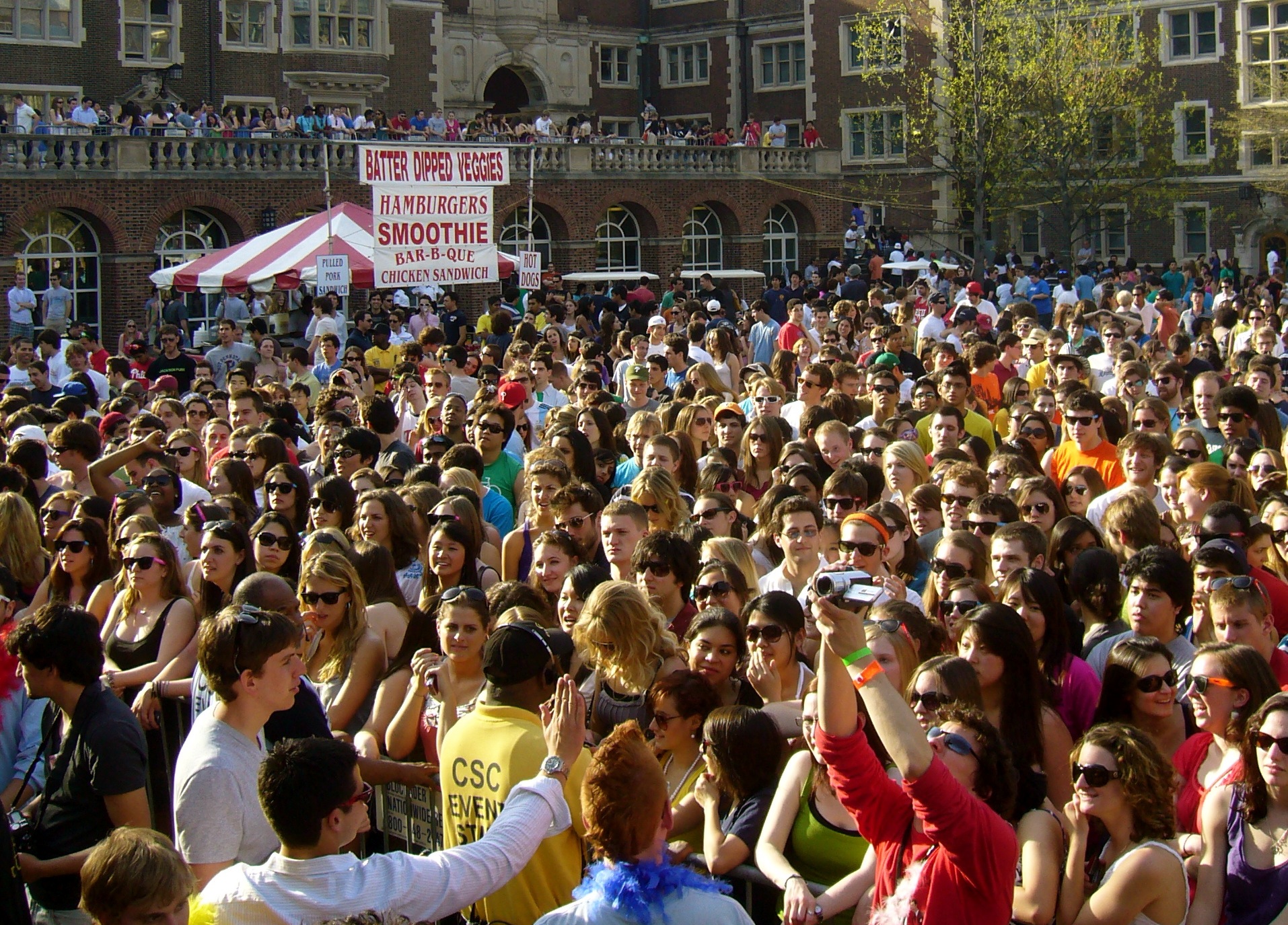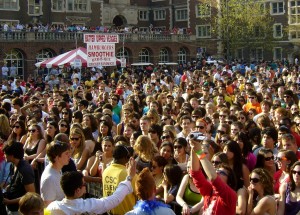By Claire Klieger
With three days of career fairs this week, it is important to have a game plan for connecting with recruiters at these events. It’s kind of like speed dating (complete with the awkward pauses or but hopefully not inappropriate questions)– You have a very short amount of time to make a positive impression and unlike during a job interview, you will be expected to initiate and possibly steer the conversation. Clearly, this means taking some time to prepare (and possibly practice) so that you don’t have do one of those awkward moments where you walk up to a table, open your mouth, have your mind go blank, and merely walk away. Here are some tips for making the most of your experience at any career fair:
Career Fair Tips from Penn Career Services on Vimeo.
1. Have a game plan. Since each of these events is quite large, it can be easy to get overwhelmed merely by the large number of tables in a room. You can see the list of which employers will be attending all of these career fairs on PennLink. Figure out which employers you’re most interested in seeing so that you can budget your time accordingly.
2. Do your homework! Do a little research on each employer of interest. Be familiar with their mission and services so that you are asking good questions when you meet them. Nothing is less impressive than someone who walks up to a table and says, “So, what do you do?”
3. Prepare questions in advance. You will sound (and feel) much more confident if you know in advance what you plan to ask. Employers will be impressed that you took the time to learn about them and that you are interested enough in them to ask targeted and specific questions.
4. Practice your elevator pitch. Since recruiters may not have much time to talk to you (and there may be a line of students waiting for their chance to interact), you have to get good at telling your story and highlighting your strengths quickly. Now, this doesn’t mean talking like one of those cattle auctioneers who speak so fast they sound like they’ve invented their own language. Rather, you should have a few key points that you want to get across. Start by introducing yourself (with a smile and firm handshake) and stating your year and major. Then you should say (briefly!) why you are interested in their industry and what skills and experiences make you a good fit. For example
“Hi my name is Sallie Spirit and I’m a senior majoring in Anthropology. I’ve become really interested in marketing through my involvement as recruitment chair for my sorority where I’ve learned the importance of effective branding and promotion. This experience required me to be very organized and developed my communication skills. I’m particularly interested in your _____ position because….”
5. Dress Appropriately. Business casual is the appropriate dress for a career fair. For men that means slacks and a button-up or polo shirt. For women it means a skirt (knee length or longer) or slacks and a professional looking top (button-up, blouse or dressy sweater/sweater set) and nothing low-cut. You want to look sharp but really want to be remembered for what you said, not what you were wearing.
6. Be respectful of the recruiter(s)’ time. Since you will probably want to see lots of different employers, you will need to budget your time and not spend too long at any one table. If there are other people waiting to speak with a recruiter, it’s especially important to be mindful of how long you speak with an employer. Ideally, a conversation with a recruiter shouldn’t last more than five minutes (and could be less).
7. Don’t lead with your resume. You should definitely bring copies of your resume to any career fair you attend but it’s a little presumptuous to start a conversation with your resume, especially since some employers won’t be collecting them at the fair. Wait for an employer to ask you for it or you can inquire at the end of your conversation whether or not they are accepting resumes and present it then.
8. Ask for business cards. You’ll be meeting a lot of people at these events and will be hard to remember conversations, let alone names, so ask for a business card when you speak with someone. Then, before you walk on to the next table, find a quiet and unobtrusive spot to jot down a few notes on the back so you can remember what you talked about. To build on your first meeting it’s a great idea to follow-up with the recruiter after the fair by sending a quick thank you email with details to remind them of what you discussed when you met. Here are some other tips for following up after a career fair.
9. Beware the grabby hands. We all know the allure of free stuff for college students and, let’s be honest, there can be some really cool giveaways at career fairs. However, you should NEVER walk up to a table and simply take something off of it without talking to the employer (about their positions, organization, etc—not just to ask about the giveaway) first.







